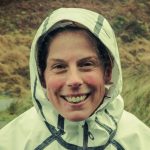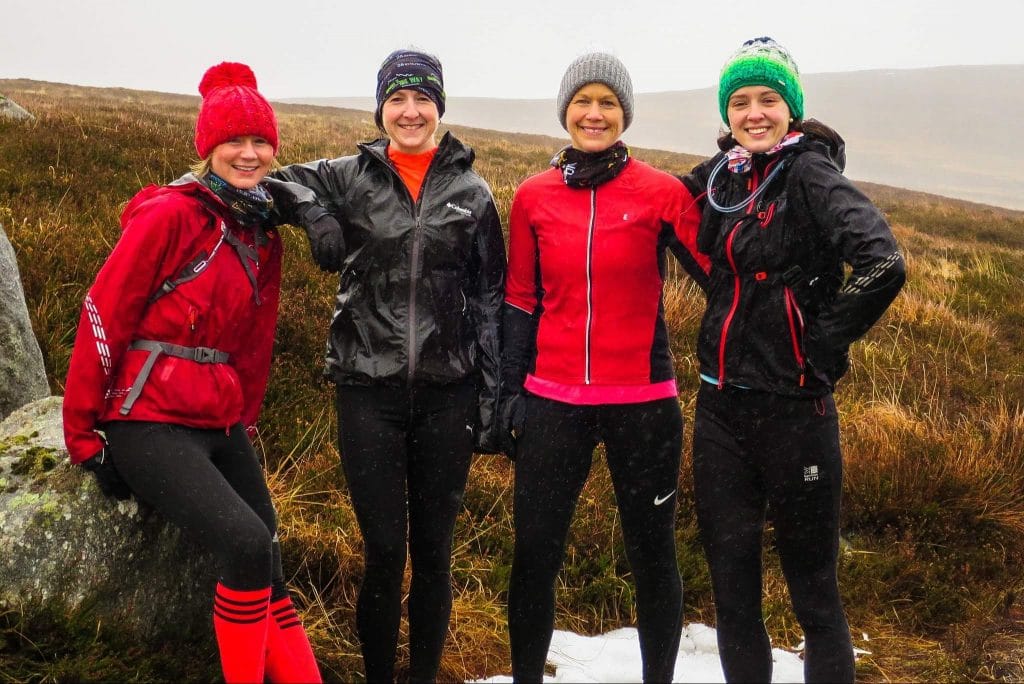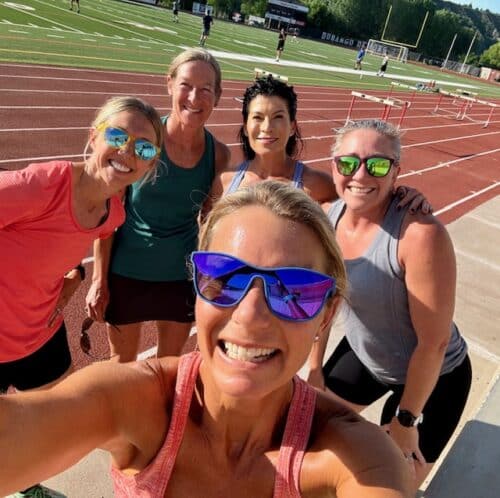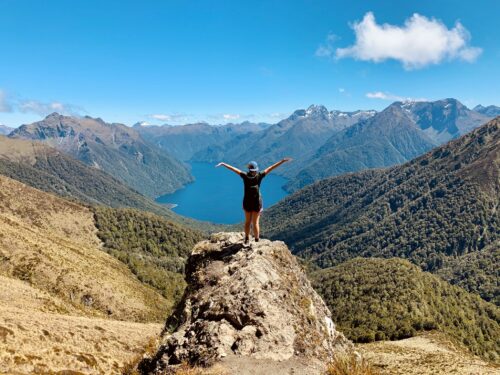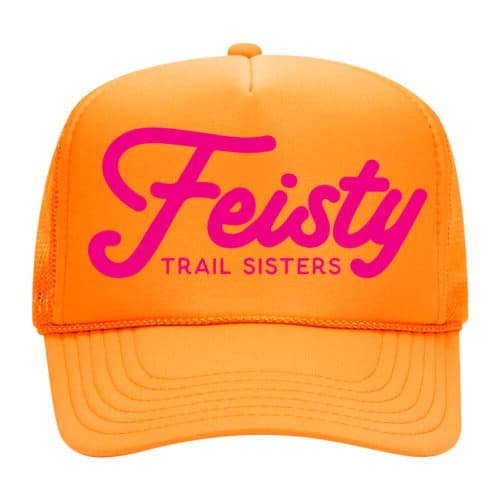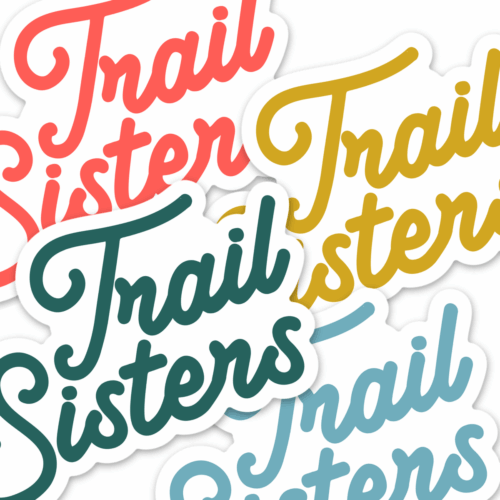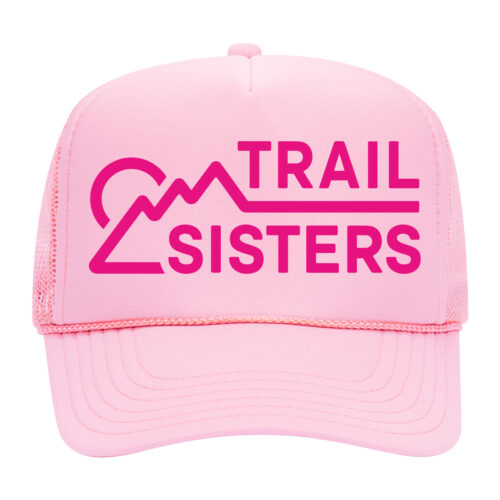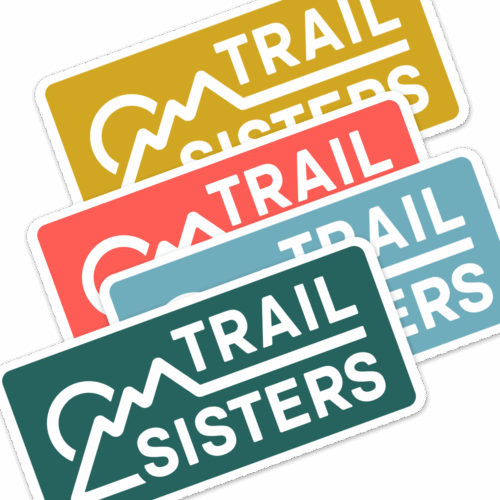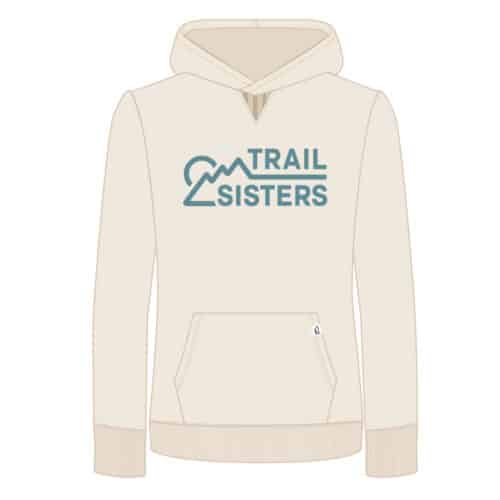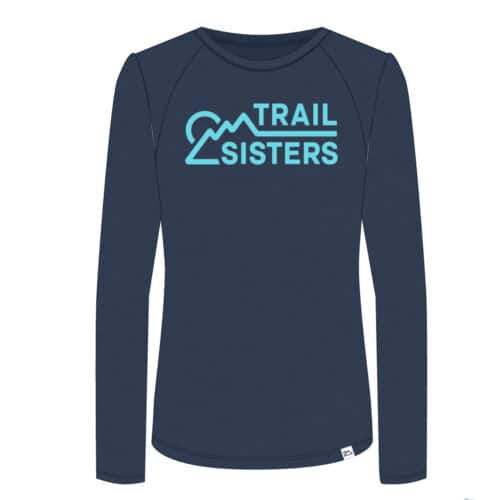You’ve seen her pushing an overloaded carriage in the supermarket being trailed by a bunch of kids. You’ve caught a glimpse of her through a classroom door as she intently gave a lesson to a room full of students. The light still on in that office building after dark is her working towards a deadline. And the nurse who cares for her patients with calm positivity and respect, even when she’s overwhelmed and under pressure, that’s her.
You have seen her and you have felt determination and strength radiating from her, but have you seen all that she is capable of? Have you seen who she becomes when her toes push off from the start line to begin an ultra-distance test of her endurance and commitment? Have you seen the flicker in her caring eyes transform into laser beams ready to burn into the mountain trails that stretch out before her?
Since moving to Ireland and settling at the foothills of the Wicklow Mountains, running has increasingly become a part of my life. I began as a casual roadrunner who was intrigued but also intimidated by running the mountain trails. The mountains and their massive presence are impossible to ignore, and I felt their temptation each time I caught a glimpse of them. A year and a half ago, I finally answered the mountain’s call and I immediately fell in love. Winding through the trails, my mind felt a clarity that I had never experienced before. I was taken aback by how alive and strong I felt. When I started to come across other women running the hills, my trail-sister admiration spiked, and the trails became my home away from home.

I was in awe when I saw the speed, strength, and endurance of these athletes. But there was something much more happening. I felt a connection. I saw myself, or the self that I knew I could be, in them. In fact, their story, my story and your story are all one. On the surface we are connected by the trails but when we look deeper, we see that we are connected by so much more.
On any given day ploughing along the trails of the Dublin Mountains or the Wicklow Mountains, there is a good chance Clare Murphy Keeley, Gail Nicolson Phibbs, Karina Jonina, and Sarah Brady will be giving new meaning to the phrase “girl power.” These women aren’t professional athletes, but they are training and racing at the standards of professionals. They are juggling the realities of everyday life while stepping up to start lines to chase personal bests. These women have completed challenges and races so demanding that few females have ever considered running them let alone attempted to run them. But Ireland’s trailblazing women, and trailblazing women worldwide, are growing in numbers and in accomplishments and will continue to grow if we listen to their stories, learn from their experiences, and emulate their commitment to the sport.
Through my conversations with Clare, Gail, Karina, and Sarah, the repeated themes of improving confidence, overcoming challenges, carving out space in a male-dominated sport, and balancing life and running prove that their stories are our stories; their struggles are our struggles; their successes are our successes. See for yourself. Let these women speak to you, inspire you, and affirm all that you are and all that you can be.
Clare Murphy Keeley
Age: 41 years old
Family: 3 children in primary school
Occupation: Community health nurse
Accomplishments:
Winner- The Wicklow Way Race (2017)
Finisher- UTMB (2017)
Gail Nicolson Phibbs
Age: 41 years old
Family: 4 children in primary and secondary school
Occupation: Academic researcher in population health / Working towards a Ph.D.
Accomplishments:
Winner (2nd overall) – Stone Mad Ultra (2016)
Winner – Mourne Way 50-mile (2017)
2nd Place (4th overall) – RAW 50-mile Race
Karina Jonina
Age: 25 years old
Occupation: Teacher
Accomplishments:
Female record holder and only the 2nd woman ever to attempt and complete The Wicklow Round (2017)
Irish Trail Team – World Ultra-Trail Championships 2017
Sarah Brady
Age: 28 years old
Occupation: Editor
Accomplishments:
Winner – Portumna Forest 50k (2016)
2nd Place- The Wicklow Way Race (2017)
2nd Place- French Trail EDF Cenis Tour (2017)
Finisher – Transylvania Skyline Race (2017)
Confidence
“I have found it hard to accept that despite the fact that I have won races, that I am in fact a good/fast runner.” – Gail
Social psychologist Amy Cuddy and countless other professionals have acknowledged that in most aspects of life, women feel chronically less powerful than men. This isn’t a surprise to most women. We struggle with confidence. We struggle with bouncing back from upsetting and damaging situations. We struggle to find a balance between how we view ourselves and how others view us, between how we perform and how we think we perform, and feeling self-assured yet not portraying ourselves as overly self-assured.
At 25 years of age, Karina has a Bachelor’s degree, she is an English teacher, and she is only the 2nd woman to attempt and to complete The Wicklow Round. She considers herself an open mountain runner rather than a trail runner, although she excels at both. Mountain running has empowered her and given her an enormous sense of self-confidence. ‘’Once I ran the Round, a wave of ‘I can do anything now’ washed over me. I now know that no matter where I am on the mountains, I can get myself home.”
Most trailblazing women credit running for helping them gain confidence; however, no one is exempt from a confidence killer when it decides to rear its ugly head.

Gail, an academic researcher and intellectual working towards her Ph. D, is no stranger to hard work, multitasking, and diligence and she explained what so many of us feel. “I am a competitive person, but one who lacks confidence at times. I can still sometimes swing between ‘Oh my God, I’m going to catch that person if it’s the last thing I ever do,’ to, ‘Ok, they are just faster than me. That’s ok. I’m not even going to try to catch them. I have found it hard to accept that despite the fact that I have won races, that I am in fact a good/fast runner.”
This pendulum swinging from self-doubt to confidence is the least talked about but most relatable feeling that women experience in so many areas of their lives. While some people try to ignore it until it passes, others allow it to manifest and take over their lives. However, Sarah, a successful editor, still turns to her friends for support when that sneaky self-doubt devil niggles its way into her head. She can be described as determination personified, but she isn’t above admitting that she too needs support. “I can sometimes let a bad run get to me too much and lose all confidence in my abilities. This is when it’s so important to have my running family around me who know all the right things to say to reassure me that everyone has bad days and that bad days don’t define you.”
Being able to talk openly about our insecurities to a supportive, nurturing network of other runners is the secret ingredient to reaching our goals. Being the minority group in an overwhelmingly male dominated sport increases the challenges we face in training, in racing, in justifying our affinity for ultra running, and in the exposure we are allotted.
Equality
“I was a tomboy and they allowed me to be me and never tried to make me conform to what a girl was supposed to be like.” – Sarah
Why aren’t more women participating in this sport? Is it because throughout life we are taught that we’re not strong or resilient enough? Is it because women are so busy taking on the traditional female responsibilities at home that they don’t have the time to train? Or is it the lack of female representation in the sport that makes women think they can’t? Perhaps it’s a bit of all of these things. What is certain is that women are a minority in trail and ultra running where gender equality is still a distant dream.

Let’s look at Ireland. In 2017 The Irish Mountain Running Association had 1,112 members. 27% of these members were women while 73% were men. 22% of female IMRA members took part in races while 62% of male IMRA members took part in races. Of the 22% of women who raced, only 3% took part in ultra-distance races while of the 62% of men who raced, 33% took part ultra-distance races. For both sexes mountain navigation races were less popular than waymarked trail runs. 149 runners raced in Irish Mountain Running Association’s Navigation Challenges in 2017 and of these 149 athletes, 2% were women while 11% were men.
These statistics show us the disparity between women and men involved in trail running within IMRA. Of course, there are women running in Ireland that are not IMRA members, but these percentages give us a better understanding of the scope of the issue within the sport in Ireland. Most certainly the gap in participation is a common thread in all running communities worldwide.
We need to have more conversations about the lack of female participation and in doing so, come up with more ways of getting women involved. One way to address this is from the top down. The gender pay gap needs to be eliminated and female podium finishers should receive the same prizes as their male counterparts. Jason Koop hit the nail on the head when he addressed this inequality in his recent article. Every member of the trail running community needs to encourage women that are dreaming of the hills to go for them. A part of doing that is sharing the stories of women who run the mountains and who race the races.
Let’s look at Sarah. She has been encouraged by her parents since her childhood to form her own identity. “I was a tomboy and they allowed me to be me and never tried to make me conform to what a girl was supposed to be like. When I said I didn’t want to wear a dress for my first communion, my parents said that was fine, despite my mother having to go and get permission from the priest for a girl to wear trousers to her communion! Maybe this encouragement and support explains why, as an adult, I never felt any inhibitions about trying a male dominated sport.”
Women need to be allowed to shape their own identities. While we wait for the advertising agencies and the rest of society to catch up and accept this, we as women need to be diligent in how we portray this in our everyday lives. It is the right of each individual to define her identity and if she identifies herself as a trail runner, then she should be running the trails.
Commitment
‘Committing to the grind…I see it as being happy and relaxing into where you are in your life right now and committing to that.’ – Clare
For Clare, pushing to the limit is just who she is. She is not only the mom of three girls, but also a community health nurse and a student working towards a Graduate Diploma at University College Dublin. The organization of her daughter’s attendance at various club meetings, sport practices, and school activities might be enough for some women, but not Clare. She has run 12 ultra-distance races over the last 4 years. If there is one thing that Clare has learned from her ultra-racing experiences, it is that commitment pays off.

Most recently at UTMB her race wasn’t unfolding as she had expected. She considered quitting because she wasn’t enjoying it and then she decided to finish no matter what. “It slowly dawned on me as I moved along that sticking with something and seeing it through, even if it is not as you expected, can be very worthwhile. Committing to the grind…I see it as being happy and relaxing into where you are in your life right now and committing to that. Things change, things can improve, you can improve, and things can be better.”
We all have negative thoughts, but we can’t let them take over our race. We must continue to focus on how we’re going to get to the finish. There is a deep strength that lives in Clare and in all of us. It’s there in that one moment when “I want to quit this,” turns into “I’m going to do this.”
Balancing Life and Running
“I keep it simple. I have a strict clock in and clock out system.” – Karina
The hussle and bussle of modern life has left us all feeling overwhelmed and craving the solace of simplicity. To accomplish her goals, Karina has stuck to practicality and simplicity. “I keep it simple. I have a strict clock in and clock out system. I get out of my car, lock the door, and go.” Karina knows that the mountains are the place for her. Unlike a lot of 25-year olds, Karina is not interested in partying, dating or scrolling through Tinder. In fact, she confesses that she just isn’t any good at them. What she is good at is open mountain running. Although heading for a mountain run on a dark and frigid evening isn’t always appealing to her, or us, we all aim to follow the plan we’ve set ourselves and find our way to our goals.
Like most successful women, Sarah is a planner. She fits her training in around her busy work schedule. “During the week it can be tight. There are just enough hours in the day to work – sleep – eat – run.” But on the weekends, she places running first and focuses on her long-term plan in her training. “If it’s a work out I really don’t like, I try to remind myself of why I’m doing it – I think about my long-term goals and how this work out is another important step on the journey.” Her sacrifices have been worthwhile, and she has proven that we get out of our training what we put in. Within two years of her first trail run, she is now one of Ireland’s top podium finishers.

We multi-task like crazy and try to squeeze all we can out of our days. We’ve all been there, having to choose between a race and a recital. As women we often put others first and when we don’t, we feel guilty. Is this instinctual or a result of societal pressures? Maybe a bit of both, but what if we allowed ourselves to commit to ourselves without the guilt? Maybe this commitment would help the very people we think it’s hurting. It could show them that they too can accomplish their dreams with diligence and commitment. Let’s not judge each other for making sacrifices, instead let’s applaud our sisters for trying. We don’t have to do everything ourselves, our partners, our families and friends can step in and support us, but we do have to commit to ourselves if we aim to achieve great things.
There have been times that Gail and Clare have had to put their goals first. It’s this commitment to their goals that has driven their success. They both share the family responsibilities with their husbands. Gail explains how her family makes it work. “I’ve always felt that once one of us is there at the play, or whatever activity, then the kids are being looked after enough in terms of their needs. They have said ‘Aw, will you not be there?’ But I explain that I must train or race or whatever it is as it’s very important to me and they know that and accept it.”
Most recently in the days before UTMB Clare’s eldest daughter was starting secondary school. “I was there for first and second day then on the third day I waved her off in the morning and hit the airport and was gone for 6 nights. I told her that I was going because I knew she would be the girl who would be totally fine. In fact, I think it was good for her because she just had to get on with it.”

Gail and Clare’s children excel in school, they enjoy their extracurricular activities, and they are loved by their parents. Mom’s commitment to ultra-trail running and Dad’s support shows children that great achievements are possible for women.
Their story is our story. They leave the warmth of their comfy beds for the wild windy mountains. They grit their teeth, dig their heels in, and run when they could just stop. They are training and racing despite being a minority. With commitment, they are facing their own personal challenges and the challenges inherent to the sport. Clare, Gail, Karina and Sarah have accomplished huge feats and their successes can be our future successes. When we all fall into our beds at the end of a long day on the trails, as we pull our pile of blankets over our sore and achy bodies, we can smile because we have pushed to the limits of our abilities. And like our sisters on the trails, we are capable.
*Editors note: If you’re looking to connect with more Trail Sisters in your area, visit our Local Community Page!


